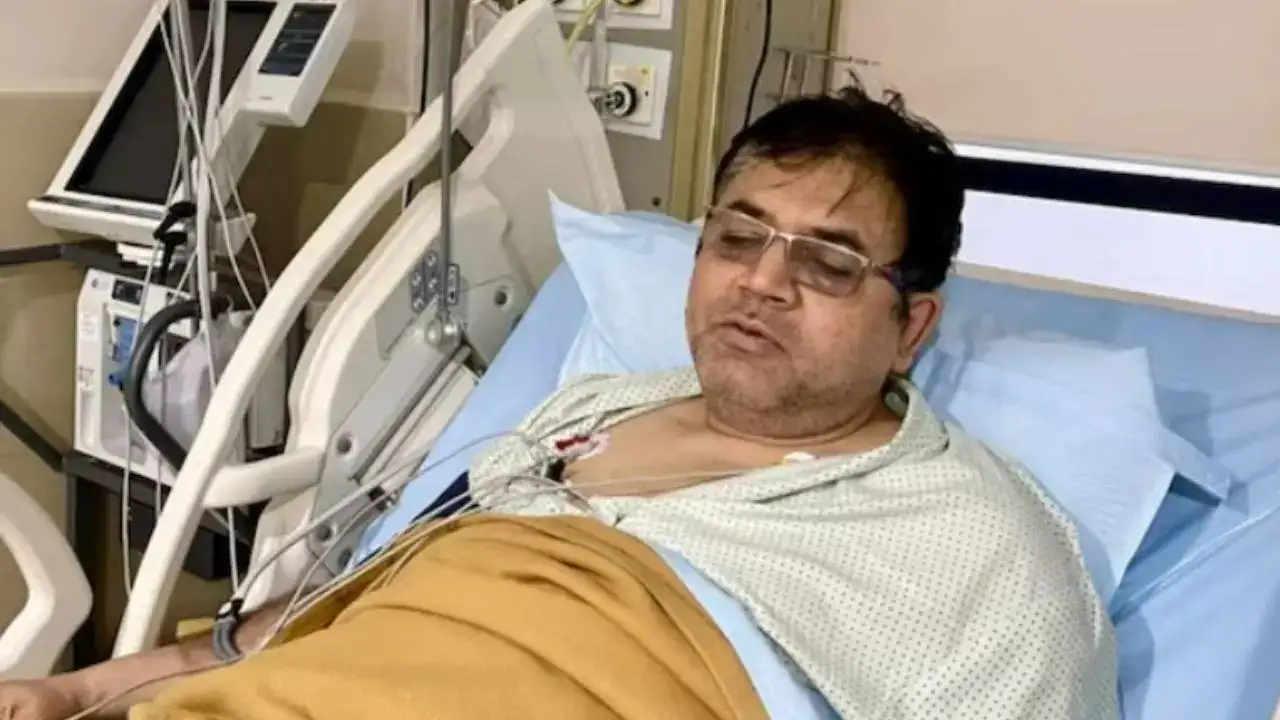Ashima Sharda Mahindra • 02 Apr 2025
CEO Lands in ICU After His Blood Pressure Dangerously Hits 230; How to Deal with Hypertension?

“Work is important, but health is non-negotiable,” Mishra wrote later. (Pic: Amit Mishra/LinedIn)
Amit Mishra, CEO and founder of Dazeinfo Media and Research Pvt. Ltd., took to social media to share his health ordeal, which he says was due to prioritising work over health. According to Mishra, who posted on LinkedIn, he suffered an unexpected medical emergency while working on his laptop as his nose began to bleed uncontrollably.
“Work is important, but health is non-negotiable,” he wrote. Mishra described how, without any symptoms, when suddenly his nose began to bleed, it resulted in an urgent trip to the hospital. While he was admitted to the ICU, doctors found that his blood pressure had shot to 230—dangerously high levels.
When your blood pressure gets high, it puts extra strain on your blood vessels, heart, and other organs, potentially leading to serious health issues like heart disease, stroke, kidney disease, and vision problems if left untreated.
Mishra said he did not have any other symptoms of hypertension, like headaches or dizziness. “No headaches, no dizziness, no warnings, no history of BP,” he wrote. “Yet I landed in this unexpected crisis.” He also mentioned that the next day, his BP levels suddenly dropped to normal without any clear explanatiAs of now, he is under medical supervision, with doctors still investigating the cause of the sudden spike and drop in blood pressure.
What happens when your blood pressure goes extremely high?
According to doctors, high blood pressure causes many heart conditions, including:
Coronary artery disease
High blood pressure narrows and damages the arteries that supply blood to the heart, known as coronary artery disease. It causes irregular heart rhythms, known as arrhythmias.
Heart failure
Uncontrolled high blood pressure strains your heart, and over time it can also cause the heart muscle to weaken or become stiff and not work as well as it should.
Enlarged left heart
High blood pressure forces your heart to work harder to pump blood to the rest of the body, causing the lower left heart chamber, known as the left ventricle, to thicken and enlarge. It thereby increases the risk of heart attack and heart failure.
Transient ischemic attack
Many times, TIA is also known as a ministroke, as it happens when the blood supply to part of the brain is blocked for a short time. Hardened arteries or blood clots caused by high blood pressure can cause TIAs.
Dementia
Limited blood flow to the arteries also leads to a certain type of dementia, known as vascular dementia. A single stroke or multiple tiny strokes that interrupt blood flow to the brain also can cause vascular dementia.
Kidney damage
If your blood vessels get damaged, they prevent your kidneys from being effective at filtering waste from the blood. It then allows dangerous levels of fluid and waste to collect, leading to kidney failure.
Retinopathy
Hypertension also leads to issues with your eyes. Damage to the blood vessels in the retina causes bleeding in the eye, blurred vision, and complete loss of vision. Having diabetes along with high blood pressure raises the risk of retinopathy.
How to deal with hypertension?
For extremely high blood pressure, seek immediate medical attention, and in the meantime:
- Stay calm
- Lie down
- Practice deep breathing.
Get Latest News Live on Times Now along with Breaking News and Top Headlines from Health and around the world.